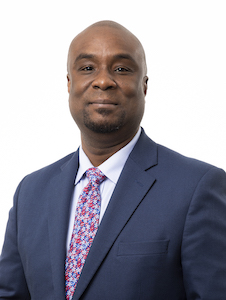Bachelor of Arts with a Major in English, Secondary Education
A degree in English Education leads to a rewarding and socially fulfilling career. Teachers of English shape their students’ critical thinking and writing skills while also performing the important civic duties of broadening students’ understanding of human culture and history. Teachers also enjoy stable employment opportunities that provide greater work/life balance than many other fields of employment. If you love literature, poetry, film, storytelling, history, philosophy, religion, and other studies in the humanities and would like to share that love with others, the English Education program is just what you are looking for.
For more information, please see the Academic Catalog. A program map, which provides a guide for students to plan their course of study, is available for download in the Courses tab below.
The B.A. in English Secondary Education prepares students to be knowledgeable practitioners of their content area—English and Language Arts. Majors complete content and discipline-specific pedagogy courses in English alongside educational theory and field-based courses in the College of Education.
English Education majors are required to submit the Teacher Education Program (TEP) Admissions Application to the College of Education by the first semester of their junior year. Prerequisites for application include a 2.7 overall GPA, completion of the Georgia Educator Ethics Assessment, and completion of General Education requirements in Areas A, B, C, D, E, and F. Upon acceptance, students begin the professional sequence, which includes advanced education coursework and a minimum of 900 hours of field experience.
Preparation for the English Education major begins in the Field of Study (FoS) with a total of 18 hours consisting of a combination of 2000-level English courses and a 1002 foreign language course (French/German/Spanish).* English Education majors are no longer required to take 2000-level foreign language courses.
After finishing the FoS for the Major, students complete 30 hours of upper division English courses. In this track, several major courses dedicate themselves to literary history, writing, reading, theory, criticism, and critical thinking, while others include explicit pedagogy components. The pedagogy-specific courses include Pedagogy and Writing (ENGL 3400); Young Adult Literature (ENGL 4295); and Advanced Grammar or the History of the English Language (ENGL 4300).
From the core curriculum to upper division courses, the English Education program at the University of West Georgia produces content-competent professionals for middle and high school settings. Completing the English Secondary Education concentration as an undergraduate is the fastest and most economical pathway to gaining English teacher certification, especially for students who are Hope Scholarship recipients.
English at UWG also offers an accelerated BA/MA in English Education (the ABM) as well as a graduate certificate and standalone MA program that allow completers to teach Dual Enrollment and lower-level college courses.
*Note: The prerequisite for SPAN/FREN/GRMN 1002 is SPAN/FREN/GRMN 1001. English majors should take SPAN/FREN/GRMN 1001 in core IMPACTS areas I (Institutional Priorities) or A (Arts and Humanities). Students who have had at least three years of high school Spanish, French, or German may be able to test directly into SPAN/FREN/GRMN 1002 via the Language Placement Exam administered by the International Languages and Cultures program. Consult the ILC website or speak with an advisor for details.
Program Location
Carrollton Campus
Method of Delivery
Face to Face
Accreditation
The University of West Georgia is accredited by The Southern Association of Colleges and Schools Commission on Colleges (SACSCOC).
Credit and transfer
Total semester hours required: 120
This program may be earned entirely face-to-face. However, depending on the courses chosen, a student may choose to take some partially or fully online courses.
Save money
UWG is often ranked as one of the most affordable accredited universities of its kind, regardless of the method of delivery chosen.
Details
- Total tuition costs and fees may vary, depending on the instructional method of the courses in which the student chooses to enroll.
- The more courses a student takes in a single term, the more they will typically save in fees and total cost.
- Face-to-face or partially online courses are charged at the general tuition rate and all mandatory campus fees, based on the student's residency (non-residents are charged at a higher rate).
- Fully or entirely online course tuition rates and fees my vary depending on the program. Students enrolled in exclusively online courses do not pay non-Resident rates.
- Together this means that GA residents pay about the same if they take all face-to-face or partially online courses as they do if they take only fully online courses exclusively; while non-residents save money by taking fully online courses.
- One word of caution: If a student takes a combination of face-to-face and online courses in a single term, he/she will pay both all mandatory campus fees and the higher eTuition rate.
- For cost information, as well as payment deadlines, see the Student Accounts and Billing Services website
There are a variety of financial assistance options for students, including scholarships and work study programs. Visit the Office of Financial Aid's website for more information.
Coursework
English majors must make a C or better in all English courses required for the major. This includes ENGL 1101, ENGL 1102, ENGL 2001, ENGL 2110, ENGL 2120, ENGL 2130, ENGL 2180, and ENGL 2190, as well as all upper-level ENGL courses that count toward the major. For all tracks, English majors can take no more than 2 upper-level ENGL courses toward the major (6 credit hours) before completing the required 2000 and 3000-level courses for the major.
Downloads
Major Required
An introduction to the psychological theories and principles applied to the classroom. The course will include aspects of learning, motivation, classroom management, and assessment. Emphasis will be placed on developmentally designed instruction for all students.
Composition course focusing on skills required for effective writing in a variety of contexts, with emphasis on exposition, analysis and argumentation, and also including introductory use of a variety of research skills.Prerequisites: All English as a Second Language students must have exited from all English as a Second Language courses. All learning support students must have completed all reading and writing required remediation.
A composition course that develops writing skills beyond the levels of proficiency required by ENGL 1101 that emphasizes interpretation and evaluation, and that incorporates a variety of more advanced research methods.Prerequisites: C or better in ENGL 1101. Completed ENGL 1101 within the past five years. Passed the home institution's computer literacy requirements.
An examination of representative African-American literary texts, with particular attention to the defining aesthetic principles of the tradition.
An exploration of significant literary texts by female authors, with particular attention to the emergence of what might be called a female aesthetic and issues of gender identity.
A gateway course that introduces students to representative critical approaches that they will encounter in the major. Emphasis will be given to research skills, methodology and analytical writing. Required for the major and minor in English. Only six hours of upper division work may be taken before the completion of this course. Enrollment requires permission of academic coordinator. Not offered in the summer session.
This class introduces students to representative philosophies and pedagogical approaches to meaningful practice in the instruction of writing. Built-in components include research as well as reflective and theoretical writing.
Topics rotate: Medieval Literature: An examination of medieval English literature in its various aspects, considering texts intheir historical context. Renaissance Literature: An investigation of Renaissance literature in its various aspects, including, but not limited to, poetry, prose, and drama, and a consideration of that literature as a part and product of its historical period. Seventeenth Century British Literature: An investigation of significant issues, themes, and ideologies in selections of seventeenth-century British literature studied in terms of their original cultural context. Eighteenth Century British Literature: A topic-centered examination of drama, fiction, poetry and other textual expression from Restoration and eighteenth-century Britain. Works may be studies in their historical, political, cultural and aesthetic context.
Topics rotate: British Romanticism: An investigation of issues, themes, and ideologies in selections of British Romantic literature studies in terms of their original cultural context. Victorian Literature: An in-depth analysis of Victorian literature in its original historical, political, cultural and aesthetic contexts. Twentieth-Century British Literature: An in-depth examination of selected twentieth-century texts from the British Isles studied in the context of relevant social, political and cultural issues. Contemporary British and American Literature: An examination of selected texts produced in the last thirty years in the British Isles and the United States.
Topics rotate: Colonial and Early American Literature: An examination of representative literary works from exploration and discovery through the era of the new American republic. American Romanticism: An examination of representative American literary works from the nineteenth century through the Civil War. American Realism and Naturalism: An examination of the American literary arts based in an aesthetic of accurate, unromanticized observation/representation of life and nature that flourished in the post-Civil War era.
Topics Rotate: Twentieth-Century American Literature: An in-depth examination of ideas and issues prevalent in twentieth-century American literature in its historical, political, cultural and aesthic context. Contemporary British and American Literature: An examination of selected texts produced in the last thirty years in the Brish Isles and the United States.
An examination of a wide range of literary texts appropriate for use in grades 7-12, focused so that students will develop an understanding of the basic reading processes, including reading assessment, comprehension strategies, and techniques for corrective reading, as well as a series of effective methodologies for promoting the critical appreciation of literature. Also covered are issues relating to the rights and responsibilities of various groups (including teachers, school administrators, and parents) involved in designing and implementing a literature curriculum.
A sustained analysis of a particular linguistic theme, an approach to, or a regional expression of the English language. Regular offerings in the history of the English language and its development from Anglo-Saxon to contemporary varieties of world English and in English grammar will rotate with other topics. May be repeated for credit as topic varies.
A capstone seminar designed to integrate students' learning in the discipline. Required for the English major. Not offered during the summer session.
Hands-on technology integration techniques are provided, scaffolding from the student's basic computer skills to foster skills in five interrelated areas of instructional proficiency: (1) Georgia's Performance Standards for Curriculum, (2) integration of modern and emerging technologies into instructional practice, (3) classroom management in classrooms, computer labs and 21st century learning environments, (4) new designs for teaching and learning, and (5) enhanced pedagogical practices.
This course is designed for investigation, assessment, and research in the teaching of English Language Arts with implications for strategies and curricular needs at the secondary level.
This course consists of the field experience designed to accompany SEED 4238. Students are expected to spend two full days in a public school placement for fourteen weeks.
Pre-requisite: Admission to Teacher Education program. Teacher candidates will gain knowledge and skills needed for curricular decision-making to develop standards-based instruction and assessments with a student-centered approach. In addition to managing classroom instruction, candidates will learn strategies for managing student behavior and developing effective classroom procedures and routines that establish a positive learning environment. Must be taken concurrently with SEED 4271L.
This course consists of the field experience that accompanies SEED 4271. Must be taken concurrently with SEED 4271.
Students will be teaching full-time for one semester in a public school secondary level (grades 6-12) classroom, under the supervision and mentorship of an experienced, qualified classroom teacher.
Designed to engage interns in a critical reflection of issues, topics, materials, and skills appropriate to their professional development and teaching experience during their internship. Will also serve as a capstone experience for satisfying exit requirements of the program. Taken concurrently with SEED 4286 or SEED 4288.
Study of characteristics, identification and assessment of exceptional children and youth across age ranges and levels of severity, including individualizing instruction in inclusive classrooms. 'Best' ranges and levels of severity, teaching practices for this population also will be examined. Designed for non-special education majors. Students must earn a grade of "B" or better in SPED 3715 or department approved alternative to meet the special education requirement of Georgia House Bill No. 671 and be recommended for educator certification in Georgia. The grade requirement of "B" or better is effective 07/01/2019 for courses completed on or after that date.

Stacy Boyd, Ph.D.
Associate Professor
Kevin Casper, Ph.D.
Professor of English
Chad Davidson, Ph.D.
Executive Director of Global Engagements and Cultural Programming
Maria Doyle, Ph.D.
Professor & Graduate Coordinator of English
Patrick Erben, Ph.D.
Professor & English Program Coordinator
Gregory Fraser, Ph.D.
Professor of English
Rebecca Harrison, Ph.D.
Professor of English
Leah Haught, Ph.D.
Professor of English & Coordinator for Publishing and Editing Certificate
Angela Insenga, Ph.D.
Professor of English and Coordinator of Film Studies
Laura Miller, Ph.D.
Professor of English
Margaret Mitchell, Ph.D.
Professor of English
Alison Umminger, Ph.D.
Professor of EnglishAdmission Process Checklist
For Admission to the University of West Georgia:
- Review Admission Requirements for the different programs and guides for specific populations (non-traditional, transfer, transient, home school, joint enrollment students, etc).
- Review important deadlines:
- Fall semester: June 1 (undergrads)
- Spring semester: November 15 (undergrads)
- Summer semester: May 15 (undergrads)
See program specific calendars here
- Complete online application
Undergraduate Admissions Guide
Undergraduate Application
Undergraduate International Application - Submit $40 non-refundable application fee
- Submit official documents
Request all official transcripts and test scores be sent directly to UWG from all colleges or universities attended. If a transcript is mailed to you, it cannot be treated as official if it has been opened. Save time by requesting transcripts be sent electronically.
Undergraduate & Graduate Applicants should send all official transcripts to:
Office of Undergraduate Admissions, Murphy Building
University of West Georgia
1601 Maple Street
Carrollton, GA 30118-4160 - Submit a Certificate of Immunization, if required. If you will not ever be traveling to a UWG campus or site, you may apply for an Immunization Exemption. Contact the Immunization Clerk with your request.
- Check the status of your application
